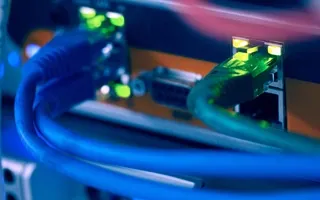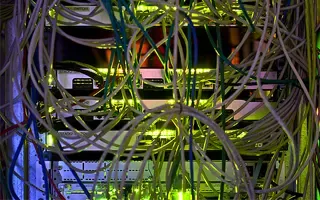Network Fundamentals: Top Picks
Network Fundamentals
Measuring Network Performance: Test Network Thr...
Measuring network performance has always been a difficult and unclear task, mainly because most engineers and administrators are unsure which appro...
Network Fundamentals
Network Unicast - Its role and Importance
Unicast is a communication method used in computer networking where data is sent from a single sender to a specific destination device. In th...
Network Fundamentals
Introduction to Content Switching - Application...
Content switches (also sometimes called application switches) is a class of network device that is becoming increasingly common in medium to large ...
Network Fundamentals
LAN Network Topologies
Network topologies can take a bit of time to understand when you're all new to this kind of cool stuff, but it's very important to fully understand...
Featured Subcategories:
Netflow Articles:
Netflow
Complete Guide to Netflow: How Netflow & its Co...
This article will cover the basics of Netflow, including its use cases, Netflow supported devices, Netflow history, and variants. We’ll also dive i...
Netflow
NetFlow Analyzer: Free Download, Step-by-Step I...
In our previous article we explained how a Netflow Analyzer can help you gain visibility into your user traffic, application traffic and data flows...
Netflow
Netflow vs SNMP. Two Different Approaches to Ne...
SNMP (Simple Network Management Protocol) and Netflow are both popular protocols with admins, prized for their ability to give visibility over the ...
Netflow
Netflow: Monitor Bandwidth & Network Utilizatio...
Monitoring network traffic & bandwidth usage via Netflow is mandatory for any type and size network. Gaining visibility into user traffic, appl...
Network Protocols:
IP Protocol
IP Protocol - Part 2: The Internet Protocol (IP...
This article examines the Internet Protocol (IP) and its position within the OSI Model. We take a look at the IP Header and all fields contained wi...
TCP - UDP Protocol Analysis
TCP Header Anaylsis - Section 3: TCP Header Len...
The third field under close examination is the TCP Header length. There really isn't that much to say about the Header length other than to explain...
TCP - UDP Protocol Analysis
TCP Header Anaylsis - Section 1: TCP Source & D...
This section contains one of the most well-known fields in the TCP header, the Source and Destination port numbers. These fields are used to specif...
Supernetting & CIDR
The Supernetting / CIDR Chart
This articles build upon our previous pages covering what is Supernetting (Route Summarization) & How Supernets Work and Supernetting In-...
TCP - UDP Protocol Analysis
Transmission Control Protocol - Part 3: The TCP...
This article shows the TCP Header and Segment. We explain where the TCP Header and Segment are located in an Ethernet frame and also briefly view t...
Subnetting
IP Subnetting - Part 2: Subnet Masks & Their Ef...
There are a few different ways to approach subnetting and it can get confusing because of the complexity of some subnets and the flexibility they o...
Supernetting & CIDR
What is Supernetting (Route Summarization) & Ho...
Supernetting is the opposite of of subnetting, and is also known as route aggregation or CIDR (Classless Inter-Domain Routing). Supernetting is a t...
IP Protocol
IP Protocol - Part 1: Binary & The Internet Pro...
To understand the Internet Protocol, we need to learn and understand Binary. It is very important to know and understand Binary because part of the...
STP/ICMP Protocols:
ICMP Protocol
ICMP Protocol - Part 5: Source Quench Message A...
The ICMP - Source Quench message is one that can be generated by either a gateway or host. You won't see any such message pop up on your workstatio...
ICMP Protocol
ICMP Protocol - Part 2: Echo / Echo Reply (Ping...
As mentioned in the previous page, an Echo is simply what we networking engineers call a 'ping'. The Echo Reply is, as most would guess, the ...
ICMP Protocol
ICMP Protocol - Part 6: Redirect Messages
The ICMP - Redirect Message is always sent from a gateway to the host and the example below will illustrate when this is used.
Putting it simply (...
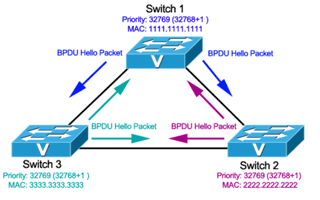
Spanning Tree Protocol (STP)
Spanning Tree Protocol – Part 3: Bridge ID, Pri...
In this article we will examine the Spanning Tree Bridge ID structure, explain why it has increments of 4096, how VLAN information is embedded (for...
Your IP address:
3.147.103.244
Wi-Fi Key Generator
Follow Firewall.cx
Cisco Password Crack
Decrypt Cisco Type-7 Passwords on the fly!

VLAN Networks
VLANs - IEEE 802.1q Trunk Link Protocol Analysis
While the VLAN Tagging article briefly covered the IEEE 802.1q protocol this article will continue building upon it by further analyzing the IEEE 802.1q...
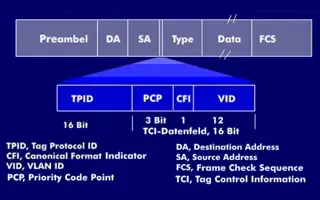
VLAN Networks
VLAN Tagging - Understanding VLANs Ethernet Frames
We mentioned that Trunk Links are designed to pass frames (packets) from all VLANs, allowing us to connect multiple switches together and independently ...

VLAN Networks
VTP Protocol - In-Depth Analysis
The previous article introduced the VTP protocol, we examined how it can be used within a network, to help manage VLANs and ease the administrative over...
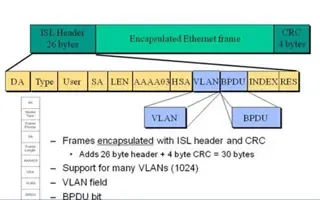
VLAN Networks
VLAN InterSwitch Link (ISL) Protocol Analysis
Deciding whether to use ISL or IEEE 802.1q to power your trunk links can be quite confusing if you cannot identify the advantages and disadvantages of e...
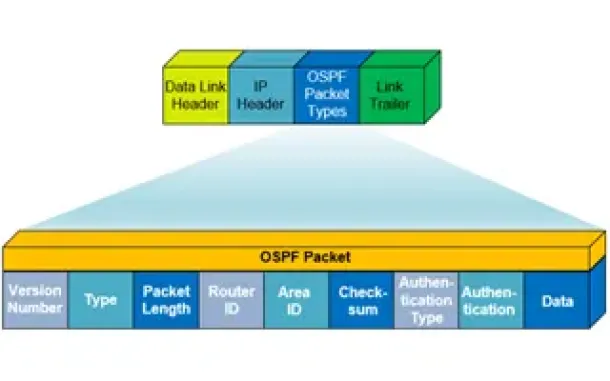
Routing
OSPF - Part 1: Introduction, OSPF Packet Structure, ...
Open Shortest Path First (OSPF) is a popular routing protocol developed for Internet Protocol (IP) networks by the Interior Gateway Protocol (IGP) worki...
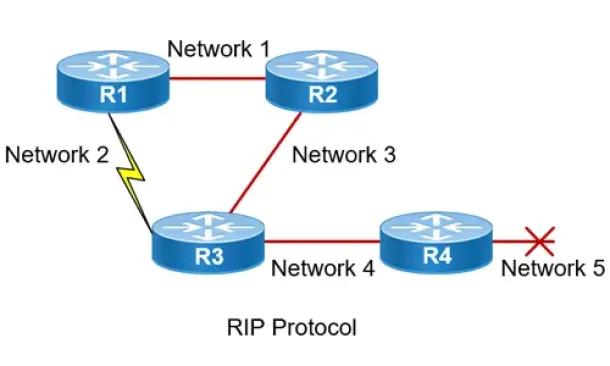
Routing
Routing Information Protocol - RIP
Routing Information Protocol (RIP) is a distance-vector routing protocol that is commonly used in small to medium-sized networks. It is one of the...
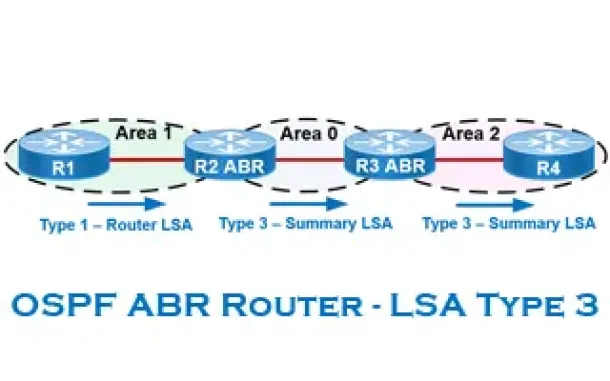
Routing
OSPF - Part 6: OSPF LSA Types - Purpose and Function...
Our previous article explained the purpose of Link State Update (LSU) packets and examined the Link State Advertisement (LSA) information contained with...
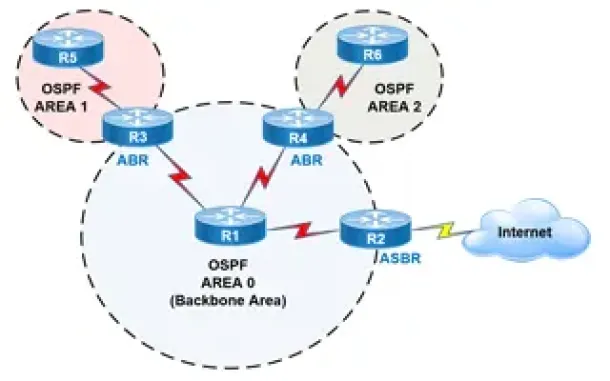
Routing
OSPF - Part 2: How OSPF Protocol Works & Basic Conce...
This article covers basic OSPF concepts and operation. We explain how OSPF works, how OSPF tables are built on an OSPF-enabled router and their purpose ...
Network Address Translation - NAT
Network Address Translation (NAT) Overload - Part 2
In our previous article, Network Address Translation (NAT) Overload - Part 1, we explained what NAT Overload is and how it works. This page deals with t...
Network Address Translation - NAT
Static NAT - Part 1
Static NAT (also called inbound mapping) is the first mode we're going to talk about and also happens to be the most uncommon between smaller networks.
...
Network Address Translation - NAT
Network Address Translation (NAT) Overload - Part 1
NAT Overload is the most common NAT method used throughout all networks that connect to the Internet. This is because of the way it functions and the li...
Network Address Translation - NAT
Dynamic NAT - Part 1
Dynamic NAT is the second NAT mode we're going to talk about. Dynamic NAT, like Static NAT, is not that common in smaller networks but you'll find it us...







